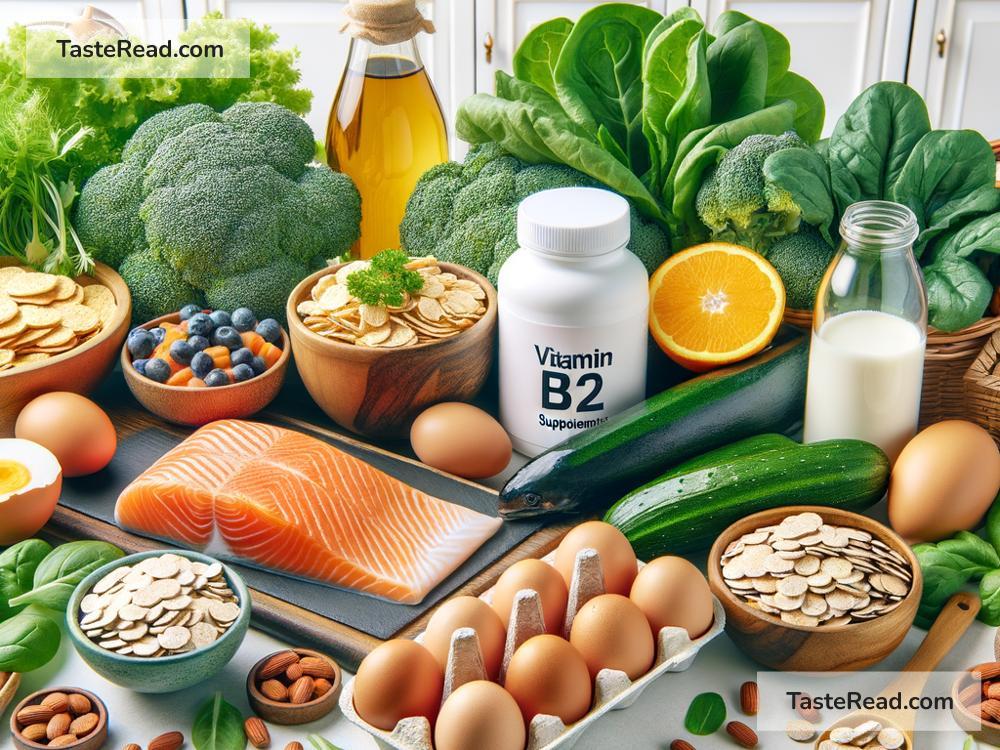The Role of Vitamin B12 in Metabolic Health: A Simple Overview
When it comes to staying healthy, vitamins play a critical role in keeping our bodies running smoothly. Among the most important vitamins is Vitamin B12, often described as a powerhouse for our metabolism and overall health. But what exactly is Vitamin B12, and why does it matter for metabolic health? Let’s dive into the basics in simple terms.
What Is Vitamin B12?
Vitamin B12 is one of the B-complex vitamins that our bodies need to function properly. It’s a water-soluble vitamin, which means it dissolves in water and is not stored in large amounts by the body. Therefore, we need to regularly get B12 from our diets.
B12 is unique because it contains cobalt, which is why it’s also known as “cobalamin.” It’s primarily found in foods like meat, fish, eggs, and dairy products. Since it isn’t naturally present in plant-based foods, vegetarians and vegans need to pay extra attention to their B12 intake.
What Is Metabolic Health?
Before we look at how Vitamin B12 affects metabolic health, let’s first understand what “metabolic health” means. Metabolism refers to all the chemical processes in our bodies that help convert food into energy, break down nutrients, and keep us functioning properly.
Metabolic health is about how well our body’s metabolism is working. Good metabolic health means that our systems are working efficiently to maintain energy levels, balance blood sugar, and regulate fat storage. On the flip side, poor metabolic health can lead to conditions like obesity, diabetes, and heart disease.
How Does Vitamin B12 Support Metabolic Health?
Vitamin B12 plays several key roles when it comes to metabolism:
1. Energy Production
One of Vitamin B12’s main jobs is helping our bodies turn the food we eat into energy. This process, called energy metabolism, depends on a group of enzymes in our cells. Vitamin B12 helps activate these enzymes, ensuring that proteins, fats, and carbohydrates are efficiently broken down into usable energy. Without enough of it, people can feel fatigued, sluggish, or weak.
2. Red Blood Cell Formation
Vitamin B12 is essential for making healthy red blood cells, which carry oxygen throughout the body. Oxygen is a critical ingredient for metabolism—our cells need it to produce energy. Without enough B12, red blood cell production slows down, leading to conditions like anemia. This can result in tiredness and a lack of energy overall.
3. DNA Synthesis
Our cells require Vitamin B12 to create new DNA, which is essential for healthy cell division and growth. Efficient cell production is a key part of metabolism, as it helps our bodies repair tissues and respond to biological demands.
4. Support for the Nervous System
Vitamin B12 also protects our nervous system and brain health. It helps produce myelin, which covers and insulates nerve fibers. Proper nerve functioning ensures smooth communication between the brain and other parts of the body, which is critical for metabolic coordination.
Signs of Vitamin B12 Deficiency
If you don’t get enough Vitamin B12, your metabolic health can take a hit. Deficiency in this vitamin is surprisingly common, especially among older adults, vegetarians, and people with absorption issues, such as those with Crohn’s disease or celiac disease.
Signs of B12 deficiency include:
– Persistent fatigue
– Weakness
– Pale skin
– Tingling or numbness in hands and feet
– Memory problems or brain fog
– Difficulty balancing
In severe cases, prolonged deficiency can lead to nerve damage and irreversible complications.
How to Maintain Healthy Levels of Vitamin B12
Getting enough Vitamin B12 can help sustain your metabolic health and energy levels. Here are simple ways to ensure you’re getting enough:
-
Eat Vitamin B12-Rich Foods
The best way to get Vitamin B12 is through your diet. Foods like meat, fish, eggs, and dairy are rich sources. For vegetarians and vegans, fortified cereals, plant-based milk, and nutritional yeast can provide B12. -
Try Supplements if Needed
If your body struggles to absorb Vitamin B12 or you don’t eat animal products, a B12 supplement or multivitamin might be a good option. Supplements come in forms like tablets, capsules, or even injections, depending on the extent of the deficiency. -
Check with Your Healthcare Provider
It’s always a good idea to talk to your doctor or nutritionist if you suspect a deficiency. A blood test can check your levels and ensure your metabolic health is on track.
The Bigger Picture: Why B12 Matters for Overall Health
Vitamin B12 isn’t just important for metabolism—it’s vital for overall health. Supporting your energy levels, blood cell production, and nervous system can significantly improve how you feel day-to-day. When your body gets enough B12, everything from your digestion to your brain function works better.
By maintaining proper levels of this essential vitamin, you’re giving your body the tools it needs to run smoothly. So, whether it’s through your diet or supplements, paying attention to your Vitamin B12 intake is a smart move for better metabolic health and a happier, more energetic life.
In conclusion, Vitamin B12 is a small but mighty nutrient that plays a big role in keeping your metabolism healthy. If you’ve been feeling tired or unwell, low B12 might be the culprit. Stay proactive by eating a balanced diet and checking in with your healthcare provider, and you’ll be well on your way to optimal metabolic health!


